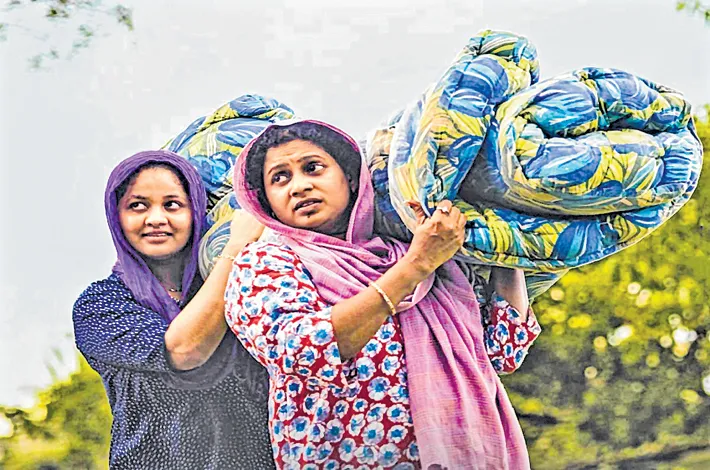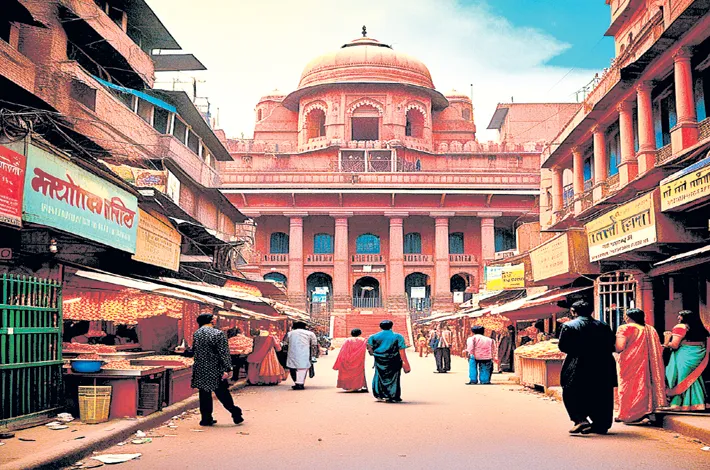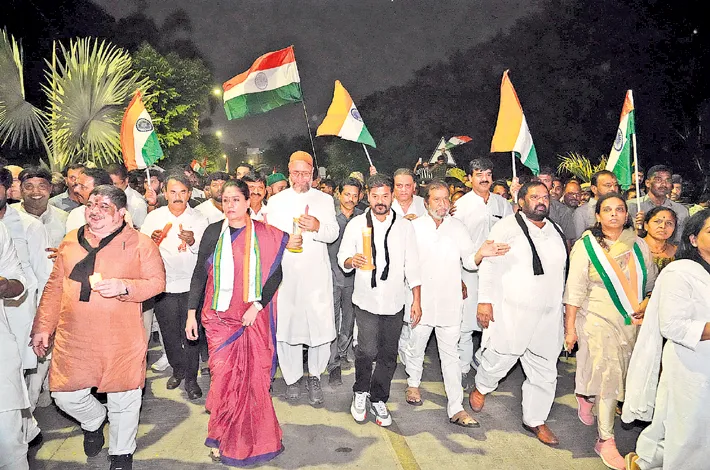Feminism sprouts in the most unexpected places in India
27-12-2024 12:00:00 AM

Using humour rather than melodrama, Feminichi Fathima asserts that financial independence empowers women
A small and simple film recently won five awards at the International Film Festival of Kerala, including the Audience Choice award. Feminichi Fathima (Feminist Fathima), the debut Malayalam-language feature by Fasil Muhammed, garnered rare unanimity between international juries and local festival-goers, most of whom were men.
Despite its fierce-sounding title, the plot appears unassuming. Yet, a subtle revolution unfolds in the modest village and home of its protagonist, Fathima. Many viewers likely related to the narrative, with men feeling a twinge of guilt and women a surge of empowerment.
Fathima (played by Shamla Hamza) lives in the coastal village of Ponnani, Kerala, with her husband Ashraf (Kumar Sunil), her mother-in-law, and their three children—two sons and a daughter.
Ashraf, a madrassa teacher and faith healer, commands respect as “Usthad” in the village. His beliefs and vocation make their household more conservative than most.
Fathima, donning a full-face and body-covering burqa, diligently performs her domestic duties—from cooking and cleaning to responding to Ashraf’s silent gestures to switch on the fan or fetch his shawl and sandals. She accepts her role with quiet resignation, believing subservience to be a wife’s duty.
Her struggles—and her inadvertent journey toward independence—begin when her eldest son wets the bed. Forced to clean the mattress, she leaves it in the courtyard to dry, only for a dog to soil it. Ashraf, blaming her for the mishap, insists the mattress be discarded and refuses to buy a replacement.
When Fathima’s backache worsens from sleeping without a mattress, her attempt to buy one on installments is thwarted by Ashraf’s refusal, citing Islam’s prohibition of interest. Even a donated mattress is rejected by him due to superstitious fears. Fathima’s exhaustion grows. Meanwhile, change brews around her.
Fathima’s brother returns from Dubai with modern gifts, a neighbour daughter films Instagram dance reels, and a hijab-wearing female architect arrives to work in the village. Ashraf’s disapproval of these modernities highlights his rigid worldview.
The film recalls Jeo Baby’s The Great Indian Kitchen, where another protagonist battles oppressive traditions in her marital home. Unlike the violent or abusive dynamics in that story, Ashraf’s patriarchal entitlement stems from deep-seated conditioning rather than malice. He mildly suggests having more children, inspired by his peers, but does not press when Fathima declines.
However, his inability to empathize with her physical discomfort compels her to seek financial independence—helping a friend with food delivery orders and organizing a women’s chit fund.
These efforts give Fathima the confidence to redraw boundaries within her home. When Ashraf struggles to serve himself food or operate a fan, her sharp retort, “Are your hands broken?” signifies a shift in their power dynamic.
Without leaving her marriage or understanding the label of “feminist,” Fathima reclaims her agency. The balance of power shifts subtly but surely as Ashraf faces the reality that the days of unquestioned patriarchy are over.
Using humour rather than melodrama, Feminichi Fathima asserts that financial independence empowers women and that change can sprout even in traditional households.
Fathima’s small acts of defiance culminate in something extraordinary—a quiet revolution in an ordinary setting. In doing so, the film demonstrates that feminism can thrive in the most unexpected places, reshaping lives one step at a time.
Deepa Gahlot is a Mumbai-based columnist, critic and author








